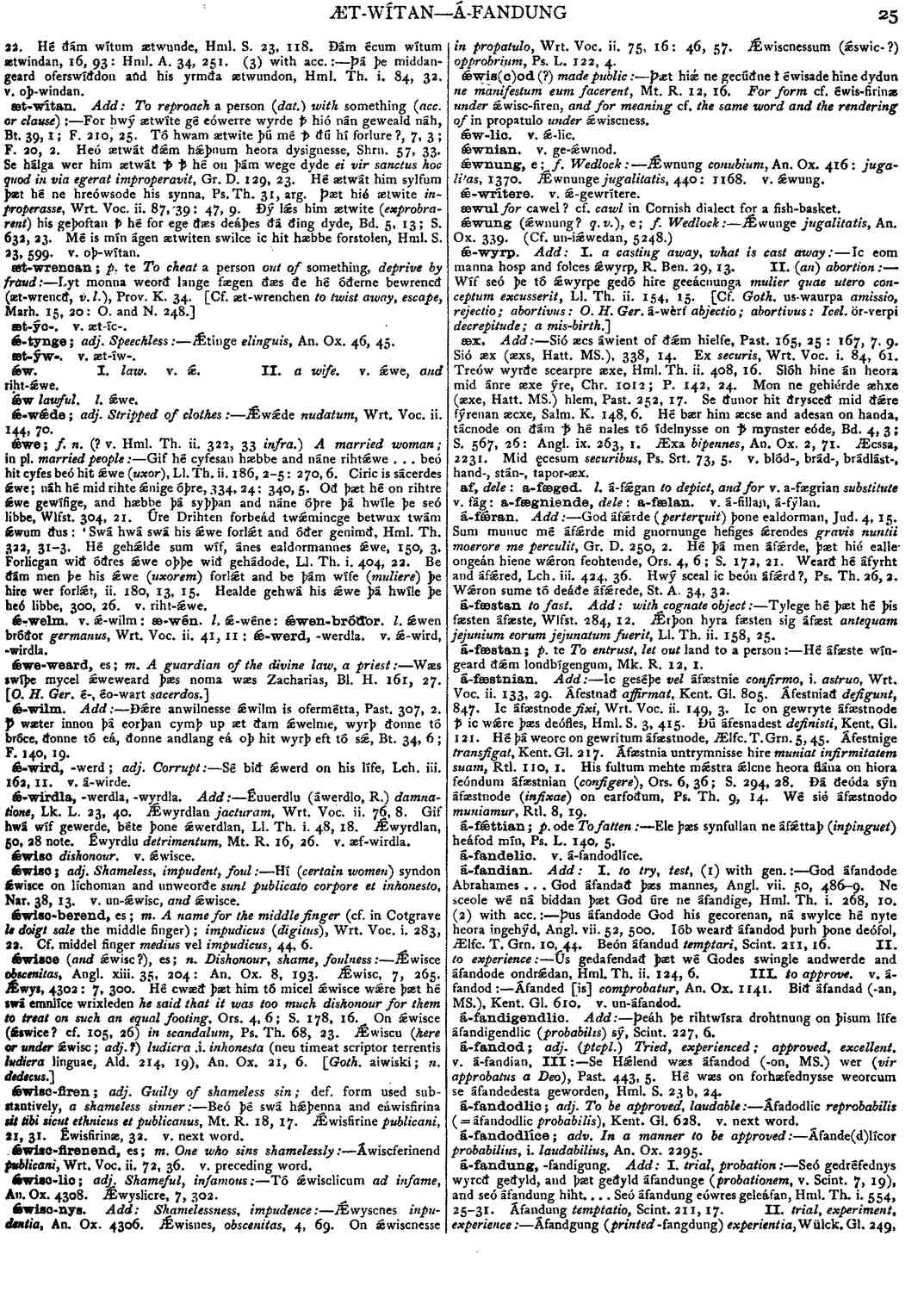ǽwisce
- noun [ neuter ]
- adjective
-
Ǽwisce
obscenitas
,- Angl. xiii. 35, 204: An. Ox. 8, 193.
-
Ǽwisc,
- 7, 265.
- Ǽwys, 4302: 7, 300.
-
Hé cwæð þæt him tó micel ǽwisce wǽre þæt hé swá emnlíce wrixleden
he said that it was too much dishonour for them to treat on such an equal fooling
.- Ors. 4, 6; S. 178, 16.
-
On ǽwisce (ǽswice? cf. 105, 26) in
scandalum
,- Ps. Th. 68, 23.
-
Ǽwiscu (here or under ǽwisc; adj. ?) ludicra, i. inhonesta (neu timeat scriptor terrentis
ludicra
linguae,- Ald. 214, 19), An. Ox. 21, 6.
Bosworth, Joseph. “ǽwisce.” In An Anglo-Saxon Dictionary Online, edited by Thomas Northcote Toller, Christ Sean, and Ondřej Tichy. Prague: Faculty of Arts, Charles University, 2014. https://bosworthtoller.com/38144.
Checked: 0